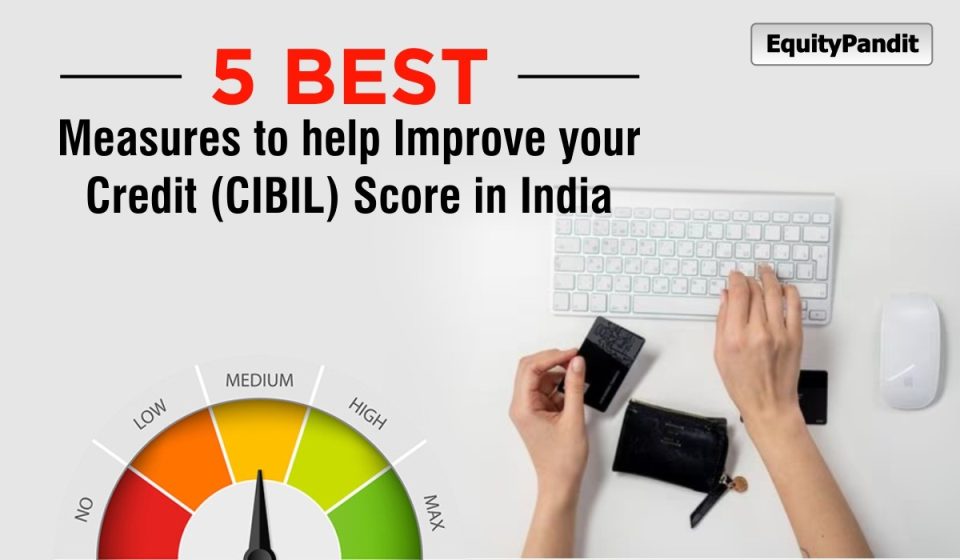The Credit Information Bureau (India) score or the CIBIL Score, is a crucial factor that the lenders consider while examining the loan application. The CIBIL Score indicates an individual’s creditworthiness and repayment capability. The CIBIL score is calculated through a proprietary algorithm that takes into account various factors, with a primary focus on the individual’s loan payment behaviour.
Various factors have to be considered while determining an individual’s CIBIL Score such as timely payment of loan instalments, credit card bills, and other credit obligations. In general, the CIBIL Score plays a significant role in determining an individual’s financial health. Further, it’s an essential aspect of the loan approval process.
What is the CIBIL score?
Your credit history is represented by the CIBIL Score, commonly known as your credit score. It’s represented numerically in a three-digit number. Your credit score varies from 300 to 900. The higher your credit score is, the higher your creditworthiness will be.
The credit score is calculated after analysing details from your credit cards, loan accounts, balances owed, payment history, and the duration of past due payments. Your credit score essentially reflects your creditworthiness. This is determined by the way the lenders report on your borrowing and repayment practices.
What is an individual’s creditworthiness?
Creditworthiness is the measure that shows how likely you will default on your debt obligations. Your creditworthiness shows how likely you can repay your debts. Lenders see your creditworthiness to see whether to lend money to the borrower or not.
Your credit score depends on two most important factors i.e. your credit score and history of repaying debts. A borrower can improve his/her creditworthiness by paying on time to reduce the debt.
How to Improve Credit (CIBIL) Score?
Various measures can be taken to improve or increase your credit score. Here are the five best measures to help improve your CIBIL score are explained below.
1) Ensure timely credit card and loan due payments
It’s crucial to manage the dues of your credit card balances on time and maintain a healthy credit card or CIBIL score. If you fail to make your credit card and loan payment on time i.e. on its due date, then, it will be recorded in your credit report under the Days past due (DPD) section in your CIBIL report.
Moreover, if you fail to pay the total due amount by the due date, it’s essential to clear the minimum amount due. This prevents the card and the loan provider from reporting non-payment of the dues to the bureau. However, it should be noted that the remaining unpaid amount will start accruing interest for the next billing cycle. Nevertheless, you will have an additional cycle to clear off your credit card dues. Therefore, this will safeguard your credit score from declining.
2) Check your CIBIL report for errors
It’s important to note that even if you have a strong credit history, there is a chance that some errors can occur that can affect your credit score negatively. There are chances of different types of errors, which include – incorrect personal information and account details, mismatched over-due or paid-off amounts, duplicate accounts, incorrect days past due or collateral details, and more.
For instance, you may have fully repaid a loan and closed the account, but due to an administrative error from the lender’s end, there is a chance that it might still be listed as a current due obligation. This type of error might have a significant impact on your credit score. Therefore, it’s crucial to understand and monitor such errors and any other mismatched information from the borrower’s end.
You must contact your bank or your financial institution to have a check on the above parameters. Further, if you detect any such errors, you can address such issues by filing a grievance with CIBIL online. Once such errors are resolved, there is a high chance of getting your credit or CIBIL Score improved.
3) Do not apply for multiple credit applications in a short period
When applying for credit, you should consider two types of credit inquiries: soft and hard inquiries. A soft inquiry occurs when you check your credit score and it does not affect your credit score. On the other hand, a hard inquiry occurs when a lender or credit card provider checks your credit information as part of your credit application.
Asking a few hard inquiries probably won’t significantly affect your credit score. However, getting a lot of hard inquiries in a short period can show lenders that you’re looking for a lot of credit in a short period. This may lead them to believe that you may be struggling financially and that you are at a higher risk of defaulting on the credit you are offering. As a result, they may decline your credit application.
Credit officers may lower the credit score of individuals who have recently made several hard inquiries. That’s why it’s important to do your research, compare different options, and ask for only one service provider when applying for a loan or credit card. If your credit score is low and you can’t wait to take additional loan/s, you should focus on improving your credit score first, before applying for a new loan.
4) Set reminders or direct instructions to pay loan EMIs on time
Missing your loan EMI payment on the due date will adversely affect your credit score. You should be careful while paying loans or credit card EMIs. If you miss or delay your EMI payment, not only will you have to pay, but your credit score will drop drastically.
The two best ways to avoid late payments are to set a reminder to pay on time or to add a Direct Debit to your bank account and allow automatic withdrawal, which is usually once a month.
5) Reduce your credit usage
Having too much debt shows lenders that you can’t live within your means. Therefore, it is important to stay below the limit while using credit. It’s also important to use as much credit as you can afford.
To achieve this, make sure that your debt does not exceed half of your income. You can also take steps like paying off your credit card balance in full without maxing out your credit card each time.
Ready to invest like a pro? Unicorn Signals app equips you with 100+ Free tools and knowledge you need to succeed. Download the app and gain access to daily trading signals, insightful market analysis and many more features!
Frequently Asked Questions (FAQs)
Is there any difference between the Credit score and the CIBIL Score?
Both the terms are used synonymously, but still, there’s a difference in the way they are sourced from. So, the only difference between CIBIL and credit score is that the credit score can be provided by any of the four credit bureaus in India. But only CIBIL gives a CIBIL score. Credit scores from all four credit bureaus are equally valid. However, the CIBIL score is generally preferred by most banks.
What is the difference between the new CIBIL Score and the old CIBIL Score?
The new CIBIL score is based on 36 months of credit history, while the old CIBIL score was based on 24 months of credit history. Further, the new CIBIL scores consumers with less than 6 months of credit history. On the other hand, in the old CIBIL score, the consumers had to build six months of credit history before they could get a score.
What factors affect the new CIBIL score?
Credit Depth (i.e. the duration of your current credit history calculated from the opening date of your oldest credit account)
- Long-term trend of outstanding balances
- Credit card transaction history
- The ratio of actual repayment to the total outstanding amount
- Number of new accounts opened and number of closed accounts
What if you find errors in your CIBIL Report?
If you find any errors in your CIBIL report, you can raise a dispute. These errors may be due to incorrect reporting or irregular updates by banks or financial institutions. You can raise a dispute using the online dispute form. CIBIL will then help you contact the lenders to resolve the disputed information.
Disclaimer: Investing in the Equity market in India is subject to risks, i.e. the market keeps on fluctuating. This article is purely for educational purposes. The views expressed and data provided here are by Equitypandit’s team. Kindly do not completely depend on the information provided as the risk appetite differs from individual to individual and there are various other factors in the market to determine the factors to invest in the market.







